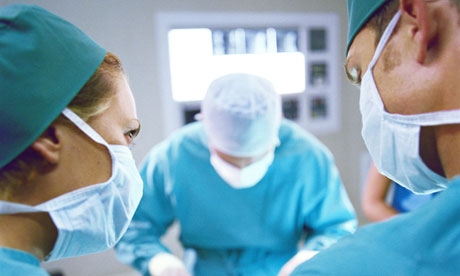
HIV-positive health practitioners, including surgeons and dentists, may soon be able to work without any limits on their practice – a change that would bring Australia in line with British regulations.
At the moment, the Communicable Diseases Network of Australia guidelines for healthcare workers with HIV say they cannot perform ‘‘exposure prone procedures’’ where there is a risk that they will injure themselves and expose a patient’s open tissue to their blood.
But new draft guidelines for the management of health professionals with blood borne viruses written by the 14 national boards governing healthcare workers in Australia say the CDNA is examining whether it should follow Britain, which recently said it would take a less risk-averse stance on practitioners with HIV who are on stable treatment and who have no recordable viral load.
‘‘The CDNA is examining whether it is necessary to change the current CDNA guideline which does not allow a practitioner with HIV to perform exposure prone procedures, regardless of treatment or viral load,’’ say the boards’ guidelines, obtained exclusively by Fairfax Media.
‘‘Under the National Boards’ proposed guidelines, any changes made to the CDNA guidelines would take immediate effect through the Boards guidelines.’’
The draft document, being released on Thursday for public consultation, aims to provide one set of explicit instructions for health professionals regarding blood borne viruses, including HIV and Hepatitis B and C.
The guidelines say all healthcare workers with a blood-borne virus should remain under regular medical care and not perform exposure prone procedures if they have any of the viruses which are transmitted by blood or body fluids that contain blood. However, they do say that people who are successfully treated for, or spontaneously clear, hepatitis C or B can return to performing exposure prone procedures.
The guidelines do not insist on ‘‘intrusive’’ mandatory testing of all healthcare workers who perform exposure prone procedures, but say these people should know their status through annual tests. The professions most likely to be conducting these procedures are surgeons, dentists, obstetricians and gynaecologists.
The guidelines do not include mandatory reporting of a blood-borne virus to a health professional’s registration board but say that if an infected practitioner is not complying with the CDNA guidelines, the relevant board governing their profession should be notified. It can then take action under national laws to protect patients from harm. This could lead to the practitioner being suspended from practice or de-registered, for example. It could also cause their state health department to be notified.
While the guidelines are designed to protect the public, they say health practitioners and students with a blood-borne virus have the same right to privacy as other individuals with an infectious disease or other illness.
Chair of the Medical Board of Australia and national board spokesperson Dr Joanna Flynn said: ‘‘We recognise that there may be a lot of debate about this issue and we are keen to hear what the community, practitioners, health experts and others have to say.’’
The new instructions come after the Victorian health department recently asked nearly 400 patients of an HIV-positive dentist to be tested for the virus as a precautionary measure. It is believed the patients were potentially exposed to the virus while the dentist did not know he or she was infected.
A spokesman for the health department said none of the patients had tested positive for HIV.
Source: The Age
